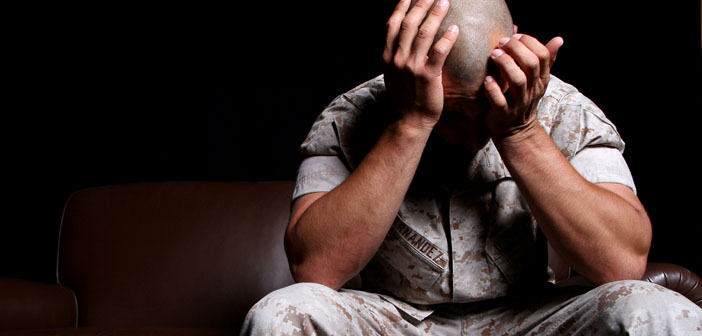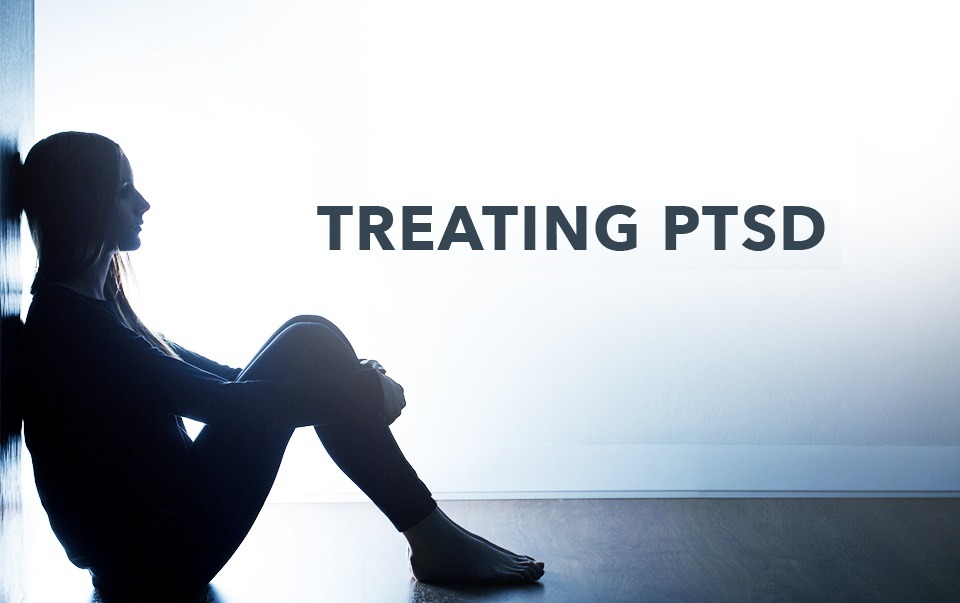
Veterans with PTSD Like Me Are Suffering
While DEA Denies Treatments That Could Help
Joseph Holsworth / San Francisco Chronicle
(April 15, 2023) — As anyone who has served on active duty can attest, the specters of war never really leave you. For 16 years, the trauma I came home with after my military service led to nightmares and cold sweats, and panic attacks during the day. I tried everything I could to end my suffering but, in the end, there was only one thing that worked.
But our government won’t allow veterans to access it.
In 2003, I was an 18-year-old Army airborne infantryman. After two tours of active duty — one in Afghanistan and another in Iraq, I’d seen more bloodshed than anyone should. But in 2005, I returned to Iraq for my third tour — this time permanently attached to the special operations Delta Force, running clandestine missions that I’m still not allowed to talk about.
I was shot at every day for 23 consecutive days and hit by two improvised explosive devices. I watched a team of medics burn alive after hitting a roadside bomb and saw a toddler liquify as a speeding Humvee smashed through his tiny body. I witnessed 9-year-old girls prostituting themselves for military food rations.
What I saw was extreme but not unusual.
Whatever their experiences, all my sisters and brothers-in-arms suffered invisible scars. Years later, as many of us continue to bear the cost of our service, we need access to whatever drugs can help us heal. Much of what is currently offered though does not work for everyone.
In 2019, after years of self-medicating with alcohol, I finally went to the Department of Veterans Affairs for treatment. It was there that I got my first Xanax pill and felt an instant release. But the peace wouldn’t last long.
What began as a way to manage post-traumatic stress disorder and anxiety quickly turned into a way to get high. Soon I wasn’t even swallowing my pills — I was chewing them and eventually snorting them. After two months, daily Xanax withdrawal became a staple of my life. When my pills ran out, I turned to heroin. A year of abuse followed. It would take an overdose and a three-night stay in the hospital to finally stop.
My experience is not unique. According to Pew Research Center, 1 in 5 veterans report struggling with substance abuse for the first few years after leaving the military. And overall, more than 1 in 10 veterans have been diagnosed with a substance abuse disorder, according to a 2017 study. Addictions can range from alcohol to prescription medications to illicit drugs — or, as in my case, all three.

After being released from the hospital, I knew I needed to find an alternative treatment. It was then that I came across the use of guided psychedelic therapy. Through the help of a friend, I found someone who offered the service and tried it. The treatment was unlike anything I’d ever experienced.
During my sessions, I was able to mentally put myself in a safe position at the center of my disturbing combat memories. It was like a lucid dream that played in slow motion. The full physicality of my memories was available. I knew every building, every street, every vehicle. I could hear each sound associated with my trauma in complete isolation. It was as if each nuanced piece of memory was only invoked when I centered on a particular aspect. It allowed me to compartmentalize each component of my trauma so I could focus on one specific element without having the chaos of the collective experience muddle my concentration.
The impact was instantaneous. Following my first of three sessions, the trauma that had occupied every day of my life diminished to the point I could reflect on my time in combat without experiencing debilitating panic and anxiety. My memories were not vanquished, but they were manageable. I could think, talk, and most importantly to me, write about my experiences.
The U.S. Drug Enforcement Administration lists psychedelics like MDMA (ecstasy), LSD, DMT (Dimitri) and psilocybin as Schedule 1 drugs — which according to its definition, means they have no medical use and a high potential for abuse. But my experience and the research say otherwise.

Although studies on psychedelics are limited because of their Schedule 1 status, some researchers have managed to obtain special permission — albeit through a slow and highly restrictive process — from the DEA to study the drugs. But even with limited studies, the results are compelling.
According to a Phase 3 study of MDMA-assisted therapy for veterans with PTSD, two months after their final session, 67% of participants “no longer met the diagnostic criteria for PTSD.” In other words, the drug cured them. And despite how the DEA classifies them, psychedelics are generally not addictive.
To be sure, psychedelics are not the end-all-be-all of treatment. As I’ve learned, therapy is always a coordinated necessity. But I can say with certainty that had I not experienced the healing power of psychedelics, I’d be dead from alcohol, heroin or my own hand.
Prescription drugs and traditional therapy are failing many of our veterans. By denying our service men and women access to psychedelics, our government is failing them, too.
Joseph Holsworth is a veteran of the Army 82nd Airborne Division. He has a master of fine arts degree from California College of the Arts and teaches at UC Santa Cruz.